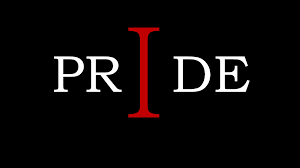The LORD Will Cut Off the Head and the Tail
9: 13-17
The LORD will cut off the head and the tail DIG: What are the specific charges the LORD lays against the leaders of Isra’el in 10:1-2? What will be the result of refusing to provide justice and peace for the people? How is the finality of this judgment emphasized?
REFLECT: What signs do you see today that God still cleans house (see verses 13-21), beginning with His own people? How might allowing the effects of wickedness to grow actually serve as part of God’s judgment upon that evil (see Romans 1:21-17)?

The reason for this second wave of judgment is that the leaders of the northern kingdom of Isra’el were responsible for leading the nation astray. In their pride and arrogance they exalted themselves. But the more they sought adulation, the less able they became to lead their people. For just leadership can only come from people who know their own weakness and corruptibility. In addition, when people know that they are ultimately responsible to God, they approach their task with reverence and dedication. But if they start to believe the glowing things people say about them because they have favors to give, then government disappears and leaders pander more and more to people who will tell them what their itching ears want to hear (Second Timothy 4:3). This is the situation Isaiah describes here.
In his second stanza, Isaiah declares: But the people have not returned to Him who struck them, nor have they sought ADONAI-Tzva’ot (9:13 CJB). After godly discipline, the people had not responded. They alone should have been able see past their corrupt leaders. The purpose of the judgment in these verses was to get Isra’el to see her need to turn to Him. But she does not and God’s anger is not turned away, His hand is still upraised. The expression turned away is the Hebrew word shuv, which carries with it the sense of repentance or conversion. It is the key word in the book of Jeremiah. Isra’el was like a child who stubbornly refuses to obey his or her parents and therefore is punished more severely. There was no repentance, so there would be more punishment.
Here Isaiah, with dry humor, describes the oppressors as the tail. Thus, ADONAI will cut off from Isra’el both head and tail, both palm branch and reed (9:14a). These are contrasts expressing totality: head (leader) and tail (follower), in other words, from one end to the other; palm branch, the tallest of plants, (upper class) and reed, the lowest of plants, (lower class) in other words from top to bottom. Because of no repentance from previous judgments, further judgment is necessary: both palm branch, the tallest of plants (upper class) and reed, the lowest of plants (lower class).
This judgment will happen in a single day, possibly the fall of Samaria in 722 BC or death of Jeroboam II that marked the end of stable government; at any rate, it was that crucial moment when ADONAI determined that the people’s rebellion had reached the point of no return (9:14b). This metaphor is explained in the next verse.
The elders and prominent men are the head, the prophets who teach lies are the tail (9:15). Because of their self-serving attitude on the part of the leaders of Isra’el, they cannot shepherd the people. As a result, the false leaders only did and said what they needed to do to keep themselves in power. Sound familiar? A good example of prophets only telling elders and prominent men what they wanted to hear is found in First Kings 22:5-23. We see here Isaiah’s main theme in Chapter 5 in the Song of the Vineyard. The elders of Isra’el were guilty of leading the nation astray. Jesus said it this way: Leave them, for they are blind guides. If a blind man leads a blind man, both will fall into a pit (see the commentary on The Life of Christ Fs – Why Do Your Disciples Break the Tradition of the Elders).
Those who guide this people mislead them, and those who are guided are led astray (9:16). Unless leaders constantly acknowledge their dependency on God, the possibility of corruption increases. Leaders will believe the adulation that fallen humans will give to them. Then they will begin to believe that they have “the right” to their position of prominence and power. Soon they will be leading not for the sake of the people, but for themselves. Their actions are tailored to maintain themselves in power. They are unwilling to make the hard decisions that are necessary, but instead, make decisions that only consolidate their power. They govern by polls, trying to decide where the people are going and then running ahead to get in front of the crowd. As a result, those types of leaders mislead the people, and those who are led are led astray.37
Therefore, ADONAI will take no pleasure in the young men, nor will He pity the fatherless and widows, for everyone is ungodly and wicked, every mouth speaks vileness (9:17a). There would be no rejoicing in the young men. This is an expression meaning those of military age. Many of them would die. What was the cause of this judgment? Isra’el had failed to have compassion for two classes, the fatherless orphans and the widows. According to the Torah, they were to receive special attention (Deuteronomy 10:18).
As the second wave of judgment passed, some must have thought they could sigh in relief. But because of its wicked leadership, the northern Kingdom had come to a point of complete corruption. Like rotten, stinking fruit, the decay had reached every level of society. As a result, Isaiah prophesied: Yet for all this, His anger is not turned away, His hand is still upraised (9:17b). A third wave of judgment was still to come.



Leave A Comment